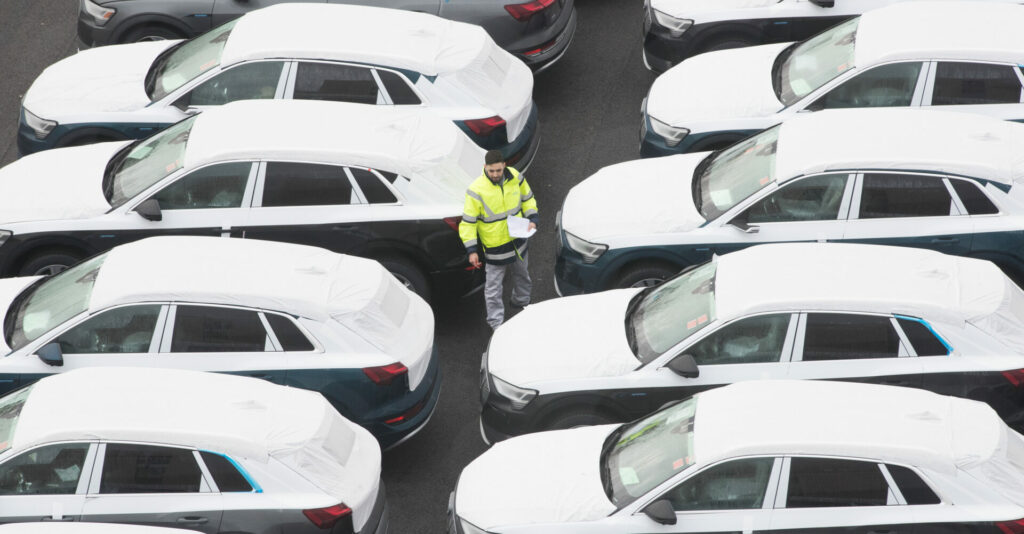The European car manufacturing industry risks being “crushed” by Chinese competitors, the CEO of Stallentis Carlos Tavares – owner of car manufacturers Peugeot, Citroën, and Fiat – told German automotive publication Automobilwoche on the side-lines of the CES tech conference on 6 January.
The executive warned that the European automotive industry was now at a crossroads in terms of competition with China, the world’s second-largest economy.
In recent years, China has made an aggressive push to enter the European market. The quality of Chinese-made vehicles has increased in recent years and the prices are often far below those of traditional European and North American vehicles.
Furthermore, China is making large strides in the electric vehicles sector, vital as the European Union seeks to ban the sale of new combustion engine passenger engine vehicles by 2035.
China car industry boom
According to financial publication Bloomberg, citing statistics from China’s customs authority, car manufacturers (both domestic and foreign) exported $3.2 billion worth of electric vehicles in November 2022, up 165% from just a year ago. The export of passenger EVs now accounts for over 50% of total car shipments from China.
China’s new line of five-star safety-rated electric vehicles is becoming increasingly popular in Europe. Chinese brand Xpeng has spent over three years building stores and service centres across Europe in preparation for the sale of its competitively priced electric sedan and SUV vehicles. SAIC Motor's MG, BYD, Geely's Zeekr and Nio brands have grown increasingly strong in recent years.
Tavares says that if European politicians did not find a solution to China’s aggressive expansion into the European market, there would be a “terrible fight.” He warns that Europe could be forced to massively reduce its production capacity if competition with China becomes too fierce: “The price difference between European and Chinese vehicles is significant. If nothing is changed, European customers from the middle class will increasingly turn to Chinese models. The purchasing power of many people in Europe is decreasing noticeably.”
There are already signs of a significant slowdown in Western car production, notably due to a dip in demand amid difficult household finances. Tavares’ Stellantis has stated that it will idle more of its car manufacturing plants due to high inflation and the cost of electrification. It has already idled its Jeep plant in the US and laid off staff.
Bumpy road ahead
Tavares’ comments echo those of French automotive supplier Forvia CEO Patrick Koller, who said that European automakers would soon be forced to develop more affordable, small battery-electric vehicles for urban use. On Belgian streets, this push can already be seen, with vehicles such as the Citroën Ami increasing in popularity. These vehicles, however, are still much more expensive than their Chinese counterparts.
“Regulation in Europe ensures that electric cars built in Europe are about 40% more expensive than comparable vehicles in China,” Tavares said. The automotive boss is now calling for more concrete action from the EU.
He fears that if nothing is done to stimulate Western production, European car production could meet the same fate as the European solar panel industry, which was decimated by Chinese competition.
Related News
- EU gets serious on microchip production amid fears of subsidy race
- US protectionism poses 'existential challenge' to Europe, say EU leaders
Tavares sees two ways ahead for European production. Either keeping the European market open and fighting the Chinese in the economic war directly; or ‘re-industrialisation’ Europe, to bring back lost industries and bring production chains closer to home.
Both paths would lead to a series of “unpopular decisions.” By keeping the European market open, European producers would likely be forced to cut capacity, plants, and jobs in favour of more strategic production sites. In terms of reinvigorating EU industry, Tavares says that the EU would need to reform its economic policies, as well as to pursue “a different trade policy.”
Any restriction in trade with China would likely be extremely unpopular, in large part due to the risk of limiting European manufacturing activities in China. “Ultimately, this challenge is akin to squaring the circle. In the current context, if nothing is done in the European Union, there will be a terrible fight,” he concluded.

